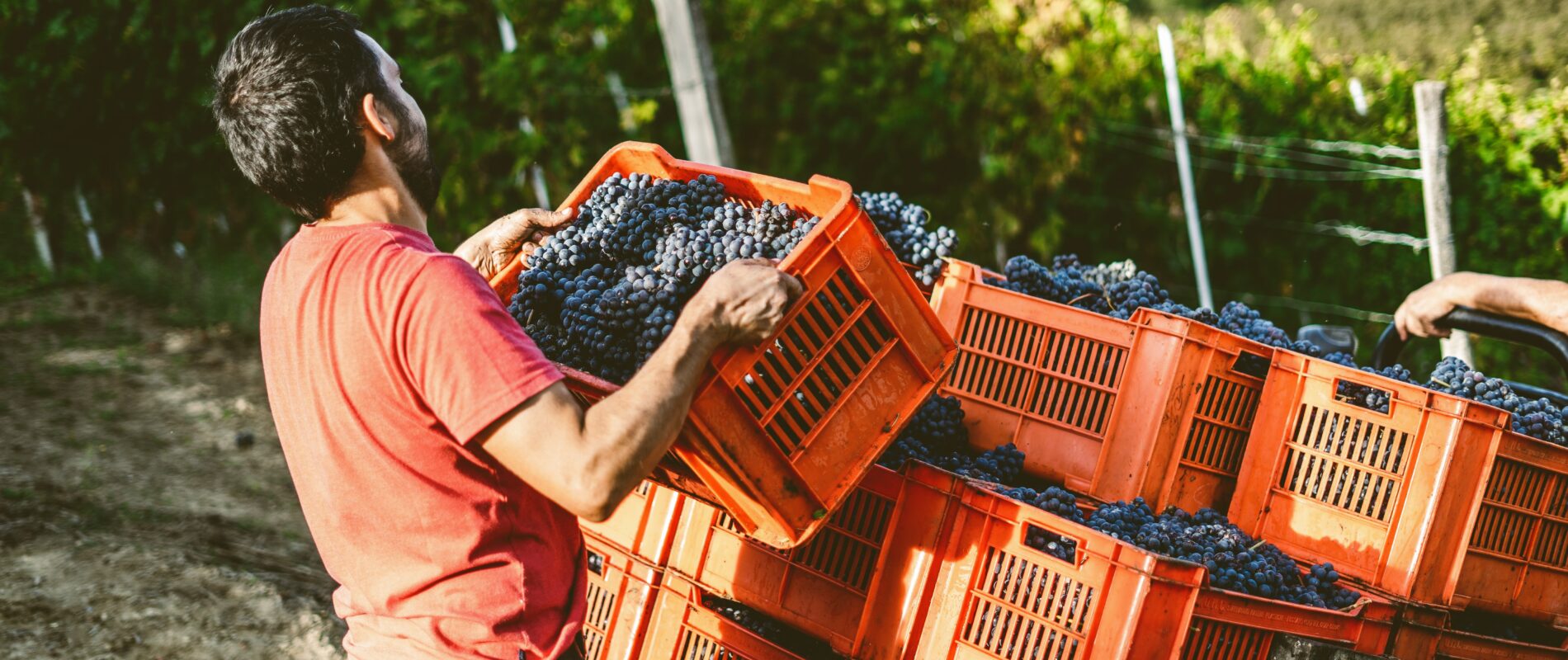Australia is undoubtedly one of the most popular Working Holiday destinations and a haven for backpackers. It’s probably no surprise that many working holiday makers fall in love with the country and want to stay longer than their first Working Holiday Visa. Luckily, Australia offers the chance for people to apply for Second and Third Working Holiday Visa… but the catch is you will need to do farm work (or other specified work) to qualify.
In reality, there is competition for work that is eligible under the visa extension framework. As a result, some working holiday makers struggle to complete enough days in the right kinds of work to meet the criteria for visa extension. If you are in this situation, read on for the best strategies to secure qualifying farm work.
Unlike participants of other nationalities,
British citizens do not need to complete specified farm work to apply for the Second and Third Working Holiday Visa. This exemption was introduced on 1 July 2024.
Read more.
Why is farm work so popular in Australia?
Australia is one of the few destinations that allows Working Holiday Visa holders to renew their visa for a second or third year.
If you have worked at least 88 days in a qualifying domain during your first Working Holiday Visa, you qualify for the second Working Holiday Visa. You must work at least 179 days in a qualifying domain during your second Working Holiday Visa to qualify for the third Working Holiday Visa.
Qualifying jobs are in high demand, as working holiday makers from around the world try to maximise their time in Australia.
In addition to qualifying you for visa extension, farm work also has a few other advantages:
- it doesn’t require any agricultural experience.
- It doesn’t require you to be perfectly fluent in English.
- You can save a lot of money, because many farms will offer accommodation for a reasonable fee (or, if you’re lucky, for free!). Also, as farms are usually in remote areas, you will have less opportunities to spend money on discretionary expenses.
- You can meet a community of backpackers because most farms hire multiple working holiday makers at a time.
Basically, it’s the ideal setup to make friends and save money for travels later on.
How to find farm work eligible for Working Holiday Visa renewal
1. Follow the harvest seasons
Too often, working holiday makers forget to educate themselves on the seasonality of harvests. It’s important to have a basic understanding of where work is actually available through the year. If you move to a region after the harvest has ended, there will be no work available until the following season. Don’t waste time and money travelling to a region where there will be no available work for some time.
If you haven’t started your working holiday yet and you want to dive straight into your farm work, following the harvest season might help you decide which city to fly into to begin your working holiday.
If you are already in Australia, doing this research will help you work out the upcoming harvests nearest to you.
2. Verify the eligibility of farms for Working Holiday Visa renewal
Not all farms satisfy the conditions for Working Holiday Visa renewal. That’s why it’s important to confirm whether your specific farm is eligible before saying yes.
To confirm the farm meets the criteria, you need to make sure the job description and the area postcode matches the list of specified work on The Department of Home Affairs website. There are slight variations between the working holiday subclasses:
You can also contact the farm directly; they will be able to give you an answer. However, don’t take it at face value, as some farms can be deceiving to take advantage of free/cheap labour from desperate backpackers. Always do your own research to verify if the work will qualify before committing to the job.
3. Consider meteorological conditions
For the past few years, Australia has experienced extreme climatic conditions: fires, floods, droughts, etc. As a result, harvest seasons have been heavily impacted.
It’s not uncommon to hear from working holiday makers who have to wait for delayed fruit picking seasons (sometimes for several weeks).
Always check that climate conditions are favourable in the region where you are looking for work. Make sure you know the emergency protocol in case you need to evacuate or change your plans.
4. Be flexible and mobile
If you have the means, it is advantageous to have your own vehicle. Due to their remoteness, most farms are not accessible by public transport. Australia is vast; journeys are measured in hours and days, not minutes.
Having the flexibility to move around whenever you want, without being reliant on lifts from other people, will help you find more work opportunities (and keep you safe!).
That being said, buying a vehicle isn’t cheap, so make sure it is the right decision for you.
5. Go door-to-door
A tried and true method, going door-to-door is a good strategy. It will allow you to see the farm in action, so you can check if the workers are well looked after and the farmers are trustworthy. Some farmers will appreciate the proactiveness, especially if you can demonstrate you’re keen and willing to work hard.
Alternatively, you can also make phone calls. List out the farms in your area, check what the upcoming harvests are, and reach out to ask when they will begin hiring.
Some farms proactively recruit in advance. Don’t miss these opportunities and respond to ads as soon as you see them.
6. Be open to other eligible types of work
Farm work is not the only type of employment eligible for Working Holiday Visa renewal. Some other specified work that counts includes:
- Tourism and hospitality in Northern, Remote and Very Remote Australia
- Plant and animal cultivation
- Fishing and pearling
- Working in the mines
- Construction
- Tree farming and felling
- Bushfire, flood and natural disaster recovery
Remember to check the details of your working holiday subclass to be sure the job you want to accept counts as specified work.
Beware of scams
Even on the other side of the planet, you can’t escape encountering potential scams. To avoid being scammed, follow these tips:
- Carefully read the job description. If it seems too good to be true, be extra alert.
- Call the farm. It’s never a bad idea to at least hear your future employer’s voice. If possible, visiting in person is even better.
- Read reviews online, if there are any, or ask former working holiday makers for their experience. You could also also try asking the farm to put you in touch with one or two former workers. Don’t frame it out of suspicion, but rather that you would like to learn more about the typical workday from previous workers in order to be more prepared.
- Always have a plan B. If you show up on your first day and find the conditions are inaccurate, dangerous or exploitative, have a plan for how you will react. What would you say? Who would you call? Where would you go? Think ahead.
- Know your rights. Learn more on Australia’s official Fair Work website.
Conclusion
Though competition is fierce, know that there are still plenty of job opportunities in Australia. With the right mix of motivation and flexibility, you should be able to find the right one for you.
Consider sharing your experience in the comments.












 Français
Français English
English




0 comments
{{like.username}}
Loading...
Load more